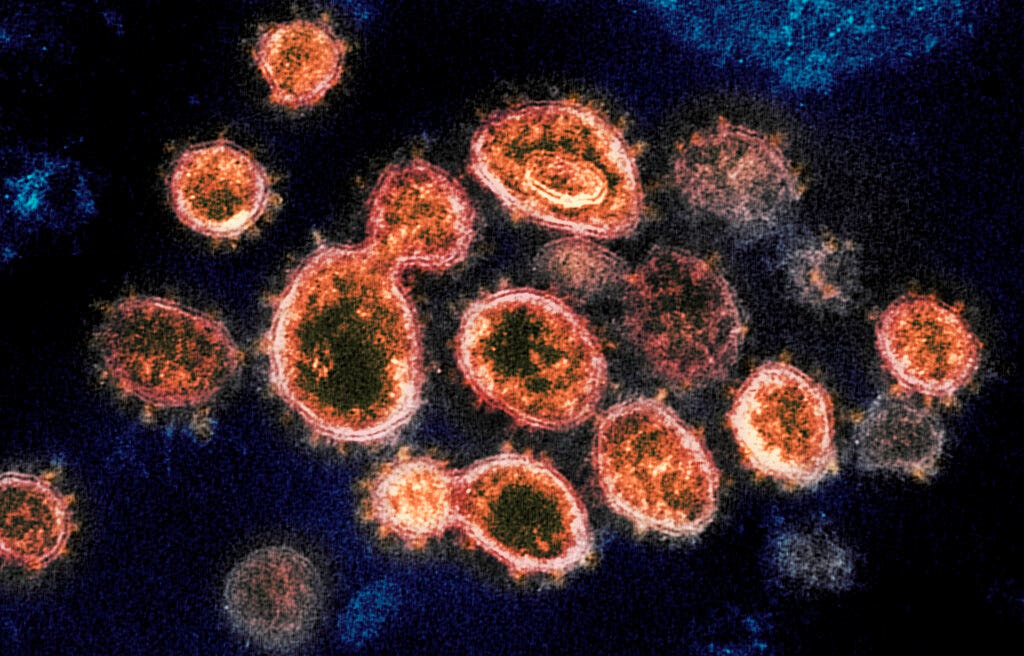Two new medical studies suggest that it is very unlikely that people infected once with COVID-19 will have positive results again for up to six months or more.
The researchers found that people with antibodies to natural infections were “at a much lower risk … in the order of the same type of protection you would get from an effective vaccine”, from getting the virus again, said Dr. Ned Sharpless, director of the US National Cancer Institute, which conducted one of the studies.
“It is very, very rare” to be infected again, he said.
Both studies used two types of tests. One is a blood test for antibodies, which bind to a virus and help to eliminate it; antibodies can remain for many months after infection. The other type of test uses nasal samples or other samples to detect the virus or pieces of it, suggesting current or recent infection.

ARCHIVE: This 2020 electron microscope image provided by the National Institute of Allergy and Infectious Diseases.
(NIAID-RML via AP)
A study, published on Wednesday by the New England Journal of Medicine, involved more than 12,500 healthcare professionals in hospitals at Oxford University in the United Kingdom. Among the 1,265 who had antibodies to the coronavirus at baseline, only two tested positive for active infection in the next six months and none developed symptoms.
This contrasts with the 11,364 workers who initially had no antibodies; 223 of them tested positive for infection in the next six months or so.
FLORIDA SENIORS NEXT IN THE LINE FOR COVID VACINES SAYS GOV. DESANTIS
The National Cancer Institute study involved more than 3 million people who tested for antibodies in two private laboratories in the United States. Less than 1% of those who initially had antibodies subsequently tested positive for the coronavirus, compared with 3% of those who did not have these antibodies.
“It is very gratifying” to see that the Oxford researchers observed the same risk reduction – 10 times less likely to have a second infection if antibodies are present, Sharpless said.
His institute’s report was posted on a website that scientists use to share research and is being analyzed by a leading medical publication.
Infectious disease expert Joshua Wolf said the findings “were not a surprise” but were reassuring because “they show people that immunity to the virus is common”.
CLICK HERE TO GET THE FOX NEWS APPLICATION
Still, the antibodies themselves may not be the protection, they may just be a sign that other parts of the immune system are able to fight any new exposure to the virus, Wolf said.
“We don’t know how long this immunity lasts,” added Wolf. Cases of people receiving COVID-19 more than once have been confirmed, so “people still need to protect themselves and others by preventing reinfection”.
The Associated Press contributed to this report.
